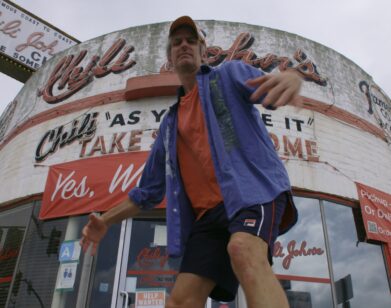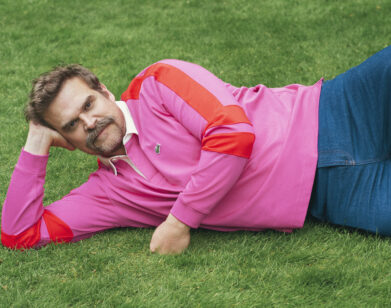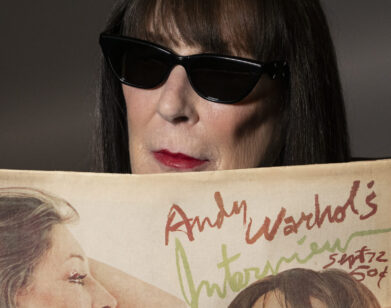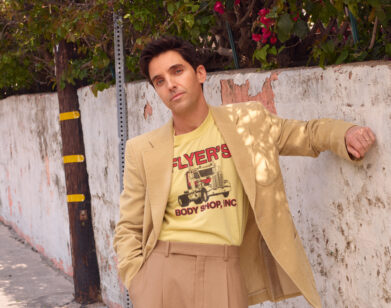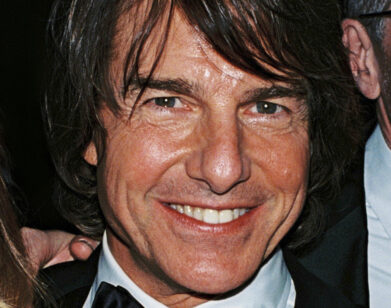Berlin’s Teddy Family
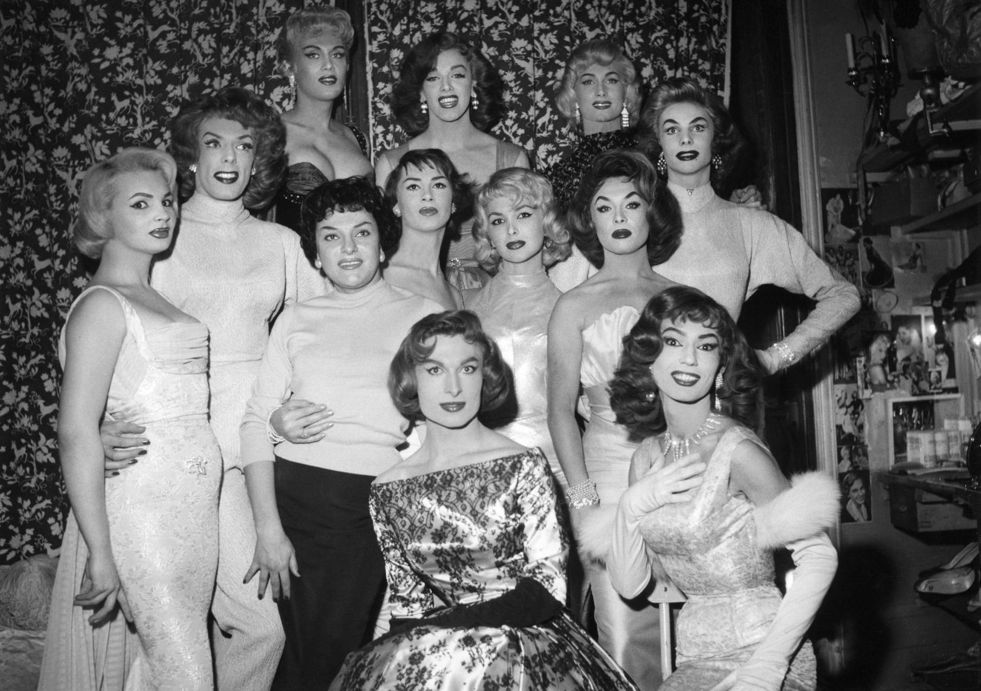
ABOVE: A SCENE FROM TEDDY-WINNING DOCUMENTARY BAMBI.
Freak flags flew at the 27th Teddy Awards ceremony and party last Friday at Station, one of Berlin’s countless abandoned transportation hub turned multi-functional art and party venues. Following a politically charged and celebratory awards ceremony, the former postal freight depot comfortably welcomed nearly 3,000 guests under the hangar-height ceilings of its main hall.
An official award of the Berlin International Film Festival, the Teddy Awards have been paving a rainbow-colored road for the recognition of queer content films worldwide. This year’s winners include In the Name of by Polish director and screenwriter Malgoska Szumowska, whose wonderful film about a Catholic priest struggling with his sexuality took home the award for best Feature Film. Best Documentary went to French director Sébastien Lifshitz’s Bambi, a touching portrait of an Algerian-born transsexual showgirl. Best Short Film went to Swedish director Victor Lindgren’s Ta av mig (“Undress Me”), and a Special Jury Award was given to Stacie Passon’s Concussion.
Award presenter and Shortbus director John Cameron Mitchell, who himself won a Teddy for Hedwig and the Angry Inch in 2001, called the goofy-smiled seated bear trophy “the cutest award ever” and then said, “Fuck Sundance.”
The Teddy Awards don’t just award films; they bring attention to organizations that utilize cinema to advocate for human rights. A special Teddy Award was given to “STEPS for the Future,” a South African media advocacy organization that fights for the inclusion of people with HIV in society. Additionally, advocacy director for the LGBT Rights program at Human Rights Watch, Boris Dittrich, spoke about the “good news and bad news” of the global state of LGBT rights.
And then there were the musical performances, most notably a moving three-song set by Rufus Wainwright, clad in a feather-printed blue suit and yellow hat (though he took the hat off for the performance). He sang a cover of Leonard Cohen’s “Hallelujah,” and the crowd’s eyes sparkled with accumulating tears as the troubadour tossed his head back poignantly. But most crowd-pleasing of all was his rousing cover of “Für mich soll’s rote Rosen regnen” (“For Me it Should Rain Red Roses”), written by gay icon Hildegard Knef, which he sang, to the crowd’s surprise and delight, in German.
With inspired speeches, musical and theatrical interludes, and towering drag queens and shirtless beefcakes to feast the eyes upon, there was no shortage of entertainment. Still, awards ceremonies are famously dry, and for this a sponsor took precaution. Placed in the program was a card that said, “You are going to fall asleep? Take a look under your seat”—and under all 1,300 chairs stood metallic cans of Red Bull. Was it a reference to the boring nature of award ceremonies or to the likelihood that most people would, in true Berlin style, be partying all night (and had probably partied for the whole of the previous night too)? Most likely both, with emphasis on the latter.
The ceremony concluded with the song “We Are Family,” a reference to the night’s theme: “Queer Icons! We reveal our queer family album.” The celebration of inclusivity and solidarity came to life as thousands more people, young and old, freaky and not, streamed in for the party.
At 2am, the slight and ever-youthful John Cameron Mitchell, now 49, wearing a sleeveless Keith Haring t-shirt and leather suspenders, took the DJ reigns with his NYC-based MATTACHINE dance party. He was joined by Shortbus stars PJ deBoy and Paul Dawson.
Teddy Award producer Elser Maxwell told Interview that the Teddy party is “the best party at the Berlinale.” And why? “The secret is that there is no V.I.P. area,” he said.
It’s not for lack of very important persons; rather, it’s a political statement and a point of pride. Unlike most official Berlinale events, where BMWs deposit tuxedo-clad celebrities onto the red carpet, tickets for the Teddy party are sold to the public, patrons purchase their own drinks, and money is earned with the entrance fee. The event could be a good metaphor for Berlin itself: a pretention-free, queer-friendly club party with a political stance in a former train station not far from where the Wall used to be—that also serves currywurst.
“Everybody is equal, that is the secret of the success,” Maxwell said, “Big stars come, but we don’t know it. It’s a party for the whole family of filmmakers and the queer community.”

